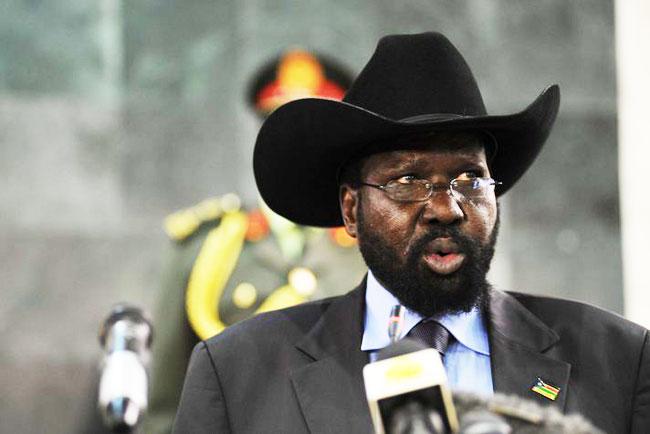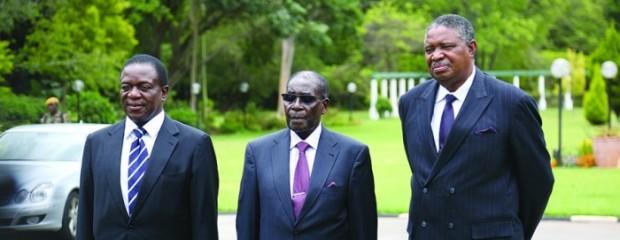Pipe-dreaming over oil in South Sudan – By Luke Patey

Across South Sudan demonstrations have been held in support of President Salva Kiir’s decision to shutdown its 350,000-barrel daily oil production. This came after Sudan’s confiscation of several shipments through the only existing pipeline out of the landlocked country, and as ongoing negotiations on a possible transit fee for South Sudan’s oil have failed. In Bor, the state capital of South Sudan’s largest state Jonglei, hundreds protested the oil “˜looting’. Primary and secondary school students were among the thousands that took to the streets of Rumbek in Lakes state, calling Sudanese President Omer al-Bashir a “˜great thief’. Peaceful demonstrations outside the National Assembly in the capital Juba urged South Sudan to “˜turn on’ its agricultural potential as the oil taps were turned off. Together, it was a remarkable show of support for Kiir’s bold move to suspend the country’s largest revenue earner in defiance of its former foes in Khartoum. This is however not the first time southern Sudanese have protested over an oil pipeline.
In the spring of 1978 the then President, Jaafar Nimeiri, announced the decision to build a pipeline from freshly discovered oil fields in the south, to Port Sudan on the Red Sea. Nimeiri and his oil minister made the plans while visiting the San Francisco headquarters of Chevron, the American oil company which made the first discoveries of Sudanese oil. The decision infuriated southern Sudanese, who wanted to see the oil head southeast to Mombasa on the Kenyan coast. While it would take another 20 years to build, ultimately by Chinese not American oil companies, and South Sudan has since won its political independence from Khartoum, the oil pipeline still stands in the way of full economic independence. A revival of this 30 year-old dream represents the final step in gaining economic independence for many of South Sudan’s political leaders, but building a southern pipeline through Kenya is fraught with challenges.
To understand some of the main technical and security challenges facing the construction of a southern pipeline, it is useful to compare the possible route with the existing pipeline through Sudan. South Sudan’s main oil production is connected to Sudan by a 1,360 km pipeline from the Melut basin of Upper Nile state. The proposed alternative, ending at an expanded port of Lamu, would be around 1,800 kilometers (depending on the exact route through Kenya) and the topography of the routes differ vastly. The existing pipeline runs across quite a flat landscape, requiring only six pumping and heating stations to keep the highly-acidic crude flowing, the new pipeline would cover diverse terrain, possibly including the highlands of northern Kenya. This will require significantly more investment in pumping stations to speed crude up the inclines and slow it down on the declines.
Additionally, there are also significant security concerns for the new pipeline. The existing route is mostly though northern Sudan, where the heavy hand of the Sudanese military and pro-government militias has laid waste to communities in and around oil areas. The new route may cross the impoverished, and bandit-riven territories of northern Kenya, where Nigerian-style oil theft and pipeline sabotage could potentially be a problem, requiring considerable time for due diligence in pipeline construction and routing. In fact, the proposed pipeline has already been threatened by rebel groups in South Sudan. The technical and security challenges for the new pipeline amount to a year or two of construction time at best and a potentially insecure construction, and later possible security threats once the pipeline is operational. Last but not least, an estimated price tag of anywhere from $1.5 to $3 billion, which is a tidy sum to wager for even the most audacious investors, but not an impossibility.
Late last month, South Sudan signed a memorandum of understanding with Kenya to build the long-discussed oil pipeline. Such broad agreements are often not worth the paper they are written on, but nonetheless represent an important initial step. Japan’s Toyota as well as Chinese companies and investors have shown some willingness to support the venture. The French oil major Total, which has rights over the largest oil block in South Sudan, has said it is interested in linking possible new discoveries in Sudan to its growing interests in Uganda. But production from existing oil fields in South Sudan has peaked, and barring new discoveries and significant investment in secondary recovery, will sharply decline from current levels over the next five years. A new pipeline would only make economic sense if Total or others operating in South Sudan were to make impressive new discoveries in the coming years.
Regional developments are however working in favour of the new pipeline. Kenya is serious about making Lamu a major international port and, more importantly, the discovery of 3 billion barrels in oil reserves along Lake Albert in Uganda opens new possibilities for South Sudan’s oil in a regional network of pipelines. Current disputes between oil companies and the Ugandan government will need to be smoothed out first, but the face of East African oil will change in the years to come, making it possible to imagine an environment in which such a pipeline could be constructed.
Economically, the best scenario for South Sudan’s oil is undoubtedly to stop pipe-dreaming, work out an agreement with Sudan, and continue to send its oil north. Investing in a new multi-billion dollar southern pipeline is, in the current climate, financial insanity. But South Sudan feels that it has been backed into a political corner in negotiations with its Northern neighbour on pipeline transit fees. Sudan’s oil sector has always been more about politics than productivity. Even with an agreement, the history of consistent political bickering and brinksmanship between the two sides over oil will most likely continue. But the longer it takes to foster stable relations over oil, the more likely the people of South Sudan will one day hit the streets in celebration of a new pipeline.
Luke Patey is a Research Fellow at the Danish Institute for International Studies and co-editor of Sudan Looks East: China, India and the Politics of Asian Alternatives (James Currey, 2011)






[…] https://africanarguments.org/2012/02/06/pipe-dreaming-over-oil-in-south-sudan-%E2%80%93-by-luke-patey… […]
[…] https://africanarguments.org/2012/02/06/pipe-dreaming-over-oil-in-south-sudan-%E2%80%93-by-luke-patey… […]
[…] post is partly an excuse for me to promote Luke Patey’s excellent essay “Pipe-dreaming in South Sudan,” but first a little context, and a few additions in […]
[…] The South Sudanese are hardly worth mentioning–between Bashir’s saber-rattling and the recent oil production freeze, the last thing Juba wants is a large-scale ground […]